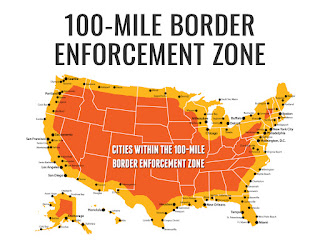Why Words Like “Genocide” and “Persecution” Don’t Apply to White Afrikaner Farmers in South Africa
Understanding the Debate
The violence against white farmers in South Africa is tragic, and every human life lost matters.
It also matters to accurately describe what’s happening, and to avoid fueling racially charged misinformation, so we need to use precise language.
Terms like “genocide” and “persecution” have internationally accepted definitions. Applying them improperly doesn’t just distort the truth, it undermines real efforts to stop actual mass atrocities around the world.
And crucially, it erases the structural reality that oppression is not just about suffering. It’s about power.
Definitions Matter: Genocide vs. Violence
The United Nations defines “genocide” as violent acts with the intent to destroy, in whole or in part, a national, ethnic, racial, or religious group.
So it is not just about murder, it’s about intent, coordination, and group targeting.
In contrast, general violence or crime, even when frequent or brutal, does not qualify as genocide unless there’s a clear, systematic goal of group eradication.
The tragic farm attacks in South Africa are not coordinated by the state or aimed at exterminating white people as a group.
South African authorities have condemned and investigated these attacks, and victims have included Black farm workers and owners too.
And importantly, the presence of violence does not mean a group is oppressed, especially if that group still holds disproportionate power.
Let’s Talk Scale
• White farmers killed in South Africa since the end of apartheid in 1994: Approximately 3,000–4,000 total over 30 years (~100/year).
• Rohingya killed/displaced since 2017: Over 750,000 displaced, thousands killed in just a few months.
• Uyghur Muslims in China: 1 million+ detained, with forced sterilization and indoctrination.
• Masalit people in Sudan (2023–2024): 10,000–15,000 killed in targeted ethnic massacres.
• Palestinians in Gaza (2023–2025): Over 50,000 killed, tens of thousands displaced.
I do not make these comparisons to downplay violence. I say this to recognize that not all violence is genocide, and equating it to genocide cheapens the term and distracts from true mass atrocities.
The Question of Power
In apartheid era South Africa, white Afrikaners controlled nearly every institution.
Even post-apartheid, white South Africans, who make up only 8% of the population, still own more than 70% of private farmland. That’s not oppression. That’s residual dominance.
Yes, white farmers face rural violence. So do Black farmers.
But white farmers are not an oppressed class. They are not being systemically erased, displaced, or denied human rights based on their race.
This matters because oppression is not defined by individual harm. It is defined by systemic power.
The oppressor cannot be oppressed.
Oppression is not about isolated acts of violence. It’s about whose lives are devalued by law, by culture, and by institutions.
It’s about who defines what is “normal,” “real,” or “worthy.”
And the group that still owns the land, controls the narrative, and shapes immigration policy cannot call itself the victim of systemic injustice, no matter how real their pain.
The Racist Double Standard in US Policy
Under Trump’s current immigration policies:
• Asylum seekers fleeing real genocides (Rohingya, Sudanese, Uyghurs, Gazans) are being detained and deported.
• White South African farmers are being granted fast-tracked refugee status.
This raises the question: Are we truly protecting the persecuted? Or filtering who deserves safety based on race?
When churches or aid organizations choose to direct their limited resources to those in the most immediate, catastrophic danger (stateless people, torture survivors, victims of ethnic cleansing) that is not racism. That is triage.
Helping people based on need, not race, isn’t discrimination, it’s moral prioritization.
But ignoring those in the greatest danger, and instead helping the more affluent or socially palatable (often white) is bias. That is what systemic racism looks like in action.
Calling triage “racist” while centering whiteness in humanitarian aid is not just hypocritical, it’s a complete inversion of reality.
It flattens the meaning of racism and ignores the global scale of human suffering in order to maintain a false sense of victimhood.
Why the “White Genocide” Narrative Is So Dangerous
The idea of a “white genocide” in South Africa has been widely used by white nationalist groups in the US, Australia, and Europe, to justify violence and promote a false sense of racial victimhood.
It’s been cited by:
• The Christchurch mosque shooter
• The El Paso Walmart shooter
• Far right propagandists pushing fear of demographic change
And it thrives when people confuse loss of dominance with oppression, or treat shared trauma as proof of systemic injustice.
We owe it to truth, and to global justice, not to amplify these narratives under the guise of “concern.”
If we truly care about violence and suffering, we should care about all of it. But we must be honest about what we’re looking at.
Violence against white Afrikaner farmers is real and awful. And it’s not genocide. It’s not persecution.
It’s not oppression in the systemic sense.
Oppression is hierarchical, pervasive, and defined by power.
Let’s save words like “genocide” and “persecution” for the places that meet the full, brutal criteria, and work toward justice for everyone, everywhere.

